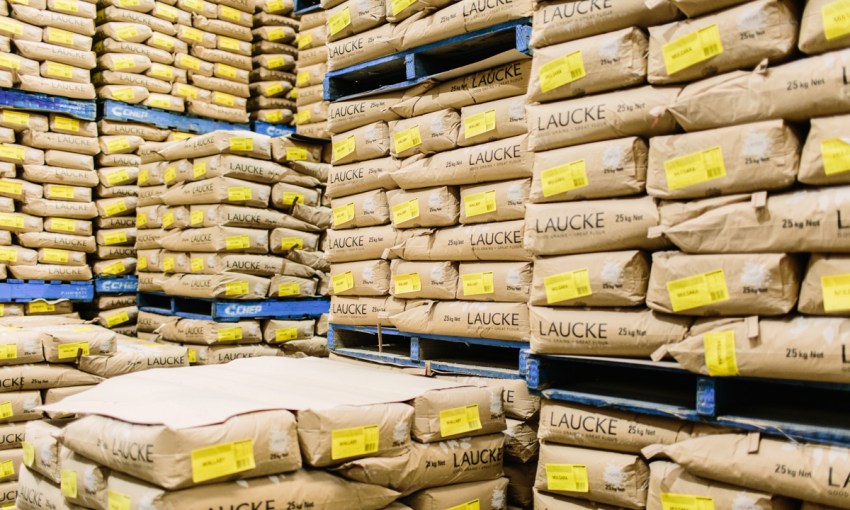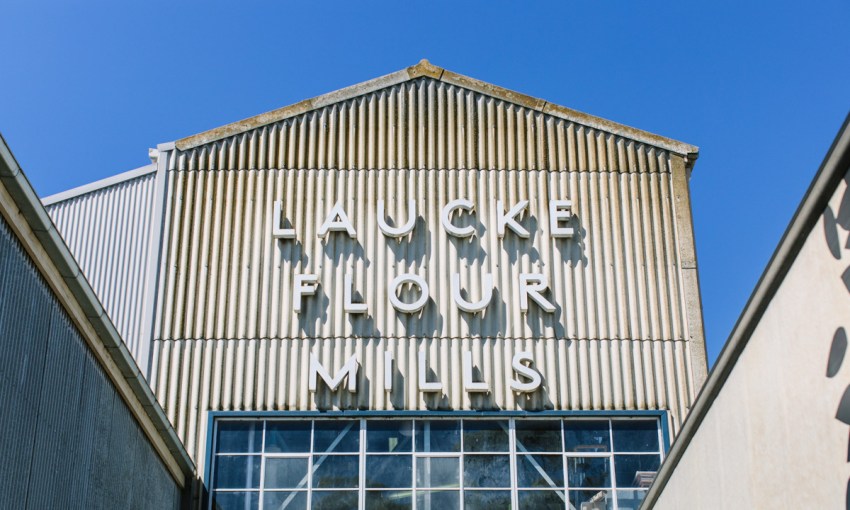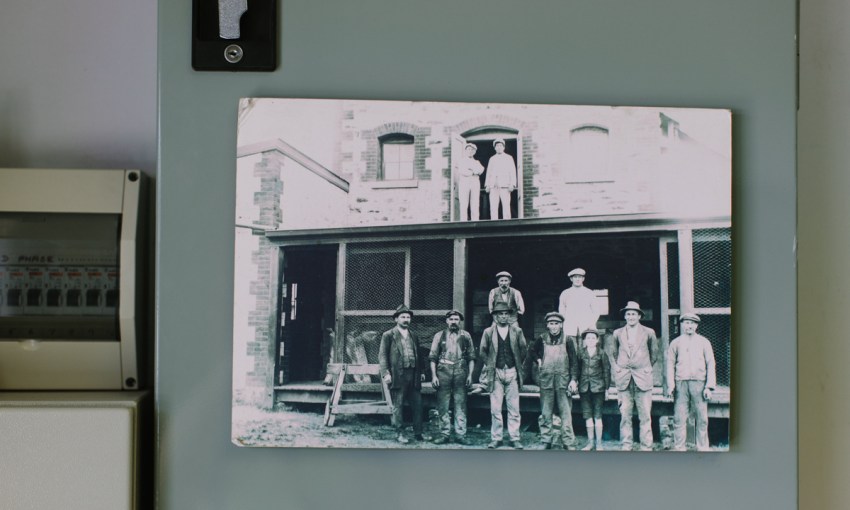A decision to treat flour more like wine than wheat has helped South Australian business Laucke Flour Mills to find new markets at home and overseas.
Far more than flour
Even as a small child playing in the Strathalbyn flour mill his family owned, Mark Laucke had an instinct for the flour trade.
“Well the flour mill was opposite the swimming pool and the swimming hole and it was a great place to play,” he says.

Laucke also creates stock feed
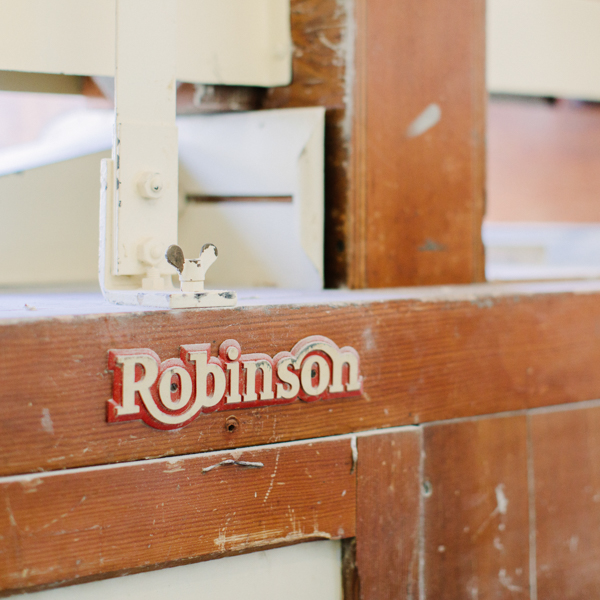
The equipment in Strathalbyn is older, but Laucke’s second mill in Victoria is state of the art
“Flour mills were always enthralling because there was just something happening the whole time. But even as a child I could see things were wrong in the business – just fundamentally and basically wrong.”
At that time, the family company – Laucke Flour Mills – was being operated by Mark’s dad, Hans Laucke, and Hans’ three brothers. They were the second generation to run the business after Mark’s grandfather Friedrich established it in 1899.
But Hans and his brothers were facing challenges that Friedrich never faced.
Multinational players like the company behind Tip Top bread had entered the market and were eviscerating the bakeries that had traditionally been Laucke’s customer base. Flour millers were engaging in a price race to the bottom in efforts to keep the few customers they had left.
Even though he was still at school, Mark could see this wasn’t a sustainable practice. Already, he was beginning to develop his theories of differentiation that would one day lead Laucke to be a domestic and international success.
“Everyone at the time was treating the flour as a commodity, and a commodity can only be differentiated by price,” says Mark. “That’s what was killing the fledgling industry for my entire life and for the generations before me.”
Although he went on to university after school and worked under his father for many years, Mark began contributing new ideas to the business as a teenager and never stopped.
“I got involved with wheat breeds when I was only in my early 20s,” says Mark. “I learned my lessons about how different species could work for different purposes by thinking, ‘what’s the difference between bread and wine? They’re both fermented, both agricultural products, and both variety based’.”
When Mark and his cousin Condor Jnr Laucke took over the company in the 1990s, he was able to bring the full force of his knowledge to bear.
By introducing or further entrenching a range of flours that had been highly researched and specifically formulated for certain types of baking and certain types of product, Mark began to bring multiple trade accounts back to Laucke.
“I went to visit Balfours… They were the largest bakery in Australia at that point,” says Mark.
“I asked the them, ‘what’s the best flour you’ve ever used?’ And they described what they used to get, and I said ‘give me a year or two’.
“I went and did my work – I got farmers to grow particular varieties in particular environments and I made a flour I thought would suit what they were doing. I went back to them with a flour particularly for making pie bottoms and pastry for pasties and so on.
“And it worked far better than anything else, and I charged more for it.”
By pursuing this mantra of quality and difference, Laucke has grown steadily. It is now the flour of choice for a range of artisan and large-scale bakeries in Australia and exports as far afield as the United Kingdom. The business now employs 118 people and operates two mills, one of which is in Victoria.
Mark has also taken the brand into new territory with a direct-to-customer range that is sold through supermarkets and largely designed for use in at-home bread machines.
This side of the business recently took a blow when Woolworths rejected a price rise that was tied to a rise in quality wheat prices, and removed most Laucke products from its shelves. But with a business balance of about 70 per cent trade and 30 per cent retail, Mark is confident in the company’s ability to withstand the change.
“The reason I got into retail was actually so that I could introduce Laucke to consumers and so that then consumers would recognise the name,” he says.
“So, the supermarkets give me distribution and that gives me an opportunity to market to people.”
Such is Laucke’s ubiquity these days, though, that even if you still don’t know the name, you’ve almost certainly tasted the flour.
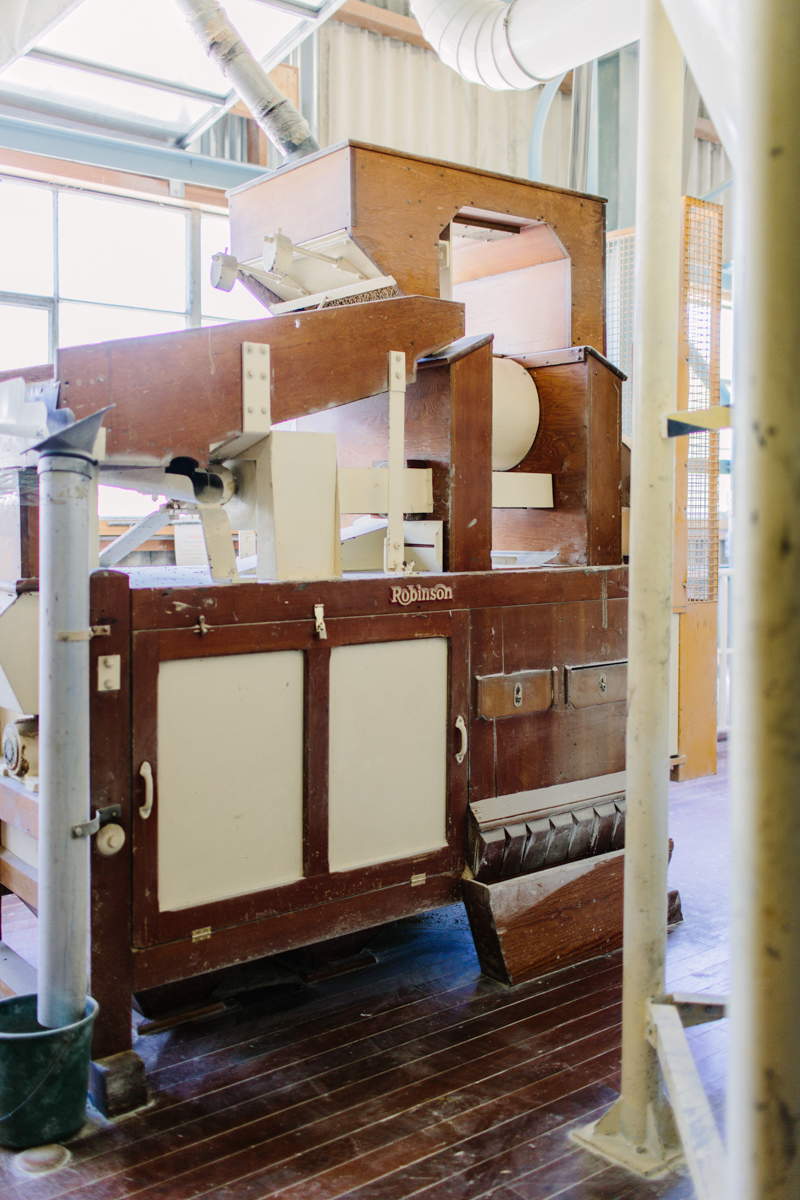
Inside the Strathalbyn flour mill



